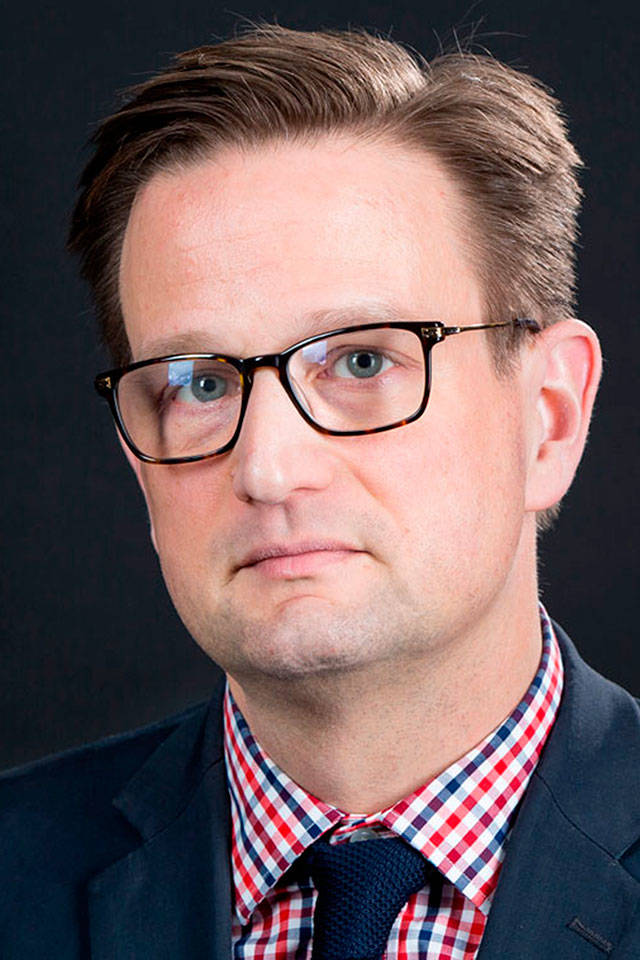There’s a line in Hillary Clinton’s new memoir of the 2016 campaign that may be among the most searingly honest utterances of her long career in public service:
“I have come to terms with the fact that a lot of people — millions and millions of people — decided they just didn’t like me,” Clinton writes in the unimaginatively titled — if perfectly appropriate — “What Happened.”
“Imagine what that feels like,” she concluded.
Yeouch.
That is tough to imagine. It’s a big enough hit to the ego if you’ve been left off the invite list for your office’s outing to Panera.
Now imagine that not only does the entire country not want to go to lunch with you, they also prefer the loudmouthed boor who keeps inappropriately touching your leg under the table.
That’s bound to leave a mark.
Those bruised feelings are on display across the pages of Clinton’s memoir, as she heaps blame on former FBI Director James Comey; “the Russian intelligence apparatus;” opponents Bernie Sanders and Jill Stein, and even, as MSNBC notes, the dark prince of Wikileaks, Julian Assange.
Sanders, for instance, “didn’t get into the race to make sure a Democrat won the White House, he got in to disrupt the Democratic Party,” Clinton wrote, adding later, ” … I am proud to be a Democrat and I wish Bernie were, too.”
The Green Party’s Stein, who played the same spoiler role as Ralph Nader did in President Bill Clinton’s 1996 win over Bob Dole “wouldn’t be worth mentioning,” were it not for the fact that she prompted voter defections in such key states as Michigan, Pennsylvania and Wisconsin.
Now-President Donald Trump narrowly won all three states — and with them — the White House.
Clinton is withering in her criticism of Trump, calling him the “the perfect Trojan horse” for Russian strongman Vladimir Putin.
Her description of Trump’s notorious looming in the background during the second presidential debate will surely resonate with any woman who’s ever felt herself the object of unwanted male attention.
“It was one of those moments where you wish you could hit pause and ask everyone watching, ‘Well, what would you do?’” she wrote. “Do you stay calm, keep smiling and carry on as if he weren’t repeatedly invading your space? Or do you turn, look him in the eye and say loudly and clearly, ‘Back up, you creep. Get away from me. I know you love to intimidate women, but you can’t intimidate me, so back up.’”
As I’ve noted before, it takes Herculean self-confidence, rapacious ambition, bottomless vanity and not a little bit of self-delusion to convince yourself that you are equal to the task of governing the world’s greatest democracy.
Clinton had all that during the perplexingly joyless trudge across the country that ended last November with her winning the battle (the popular vote), but not the war (the Electoral College).
But the one thing she seemingly never had was a convincing narrative for why she, above all others, deserved the Oval Office.
That her campaign went through more resets than a failing iPhone was testimony to that fact.
Elsewhere, Clinton muses on why she was so disliked by a certain portion of the electorate: “What makes me such a lightning rod for fury? I’m really asking. I’m at a loss.”
She correctly (and sadly) concludes, “I think it’s partly because I’m a woman.”
In the end, many voters — myself included — channeled our instinct for self-preservation and went the “Not Trump” route, opting for Clinton’s stolid predictability and marked professionalism to the darkly nationalist rage and narcissistic instability that fired the Republican nominee’s candidacy.
Unlike Trump, who seems to possess no capacity for introspection, Clinton at least has the presence of mind to recognize, ultimately, that her failure was her finally her own.
“I go back over my own shortcomings and the mistakes we made. I take responsibility for all of them,” she wrote. “In my more introspective moments, I do recognize that my campaign in 2016 lacked the sense of urgency and passion that I remember from [Bill Clinton’s first campaign in 1992].”
She also writes:
“I go back over my own shortcomings and the mistakes we made. I take responsibility for all of them. You can blame the data, blame the message, blame anything you want — but I was the candidate.”
It would have been nice to have seen more of this Hillary Clinton in 2016.
With Donald Trump’s Washington hamhandedly lurching from crisis to crisis, one wonders how things might have turned out differently.
An award-winning political journalist, Micek is the Opinion Editor and Political Columnist for PennLive/The Patriot-News in Harrisburg, Pa. Readers may follow him on Twitter @ByJohnLMicek and email him at jmicek@pennlive.com.



